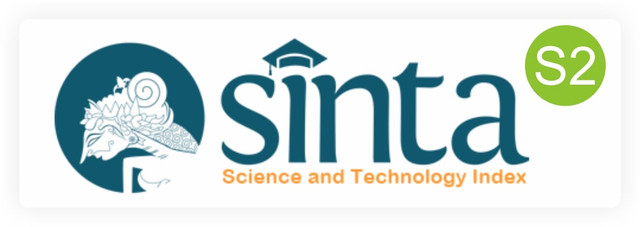The gel formulation of the aqueous phase of snakehead fish (Channa striata) extract with various combinations of HPMC K4M and Carbopol 934
DOI:
https://doi.org/10.12928/pharmaciana.v8i1.8356Keywords:
Snake head fish, gel, HPMC 4000, Carbopol 934, Gelling stability.Abstract
Gel is a clear and semi-solid material, translucent and contains active material. The liquid phase of Ekstrak Ikan Gabus contains reactive Albumin benefits to advance the wound-healing process. HPMC and carbopol is the gelling agent uses to form gel material. This research aims to acknowledge the effect of basic combination variety (gelling agent) towards physical and chemical stability of gel material during liquid phase of Ekstrak Ikan Gabus in length of period 28 days. Variety of HPMC: Carbopol used, 25:75%, 50:50%, and 75:25%. Physical and chemical test conducted they are, organoleptic test, dispersion test, bonding strength test and pH test. The result is analyzed through one-way ANOVA and continued by LSD test with validity 95%. The whole formula is resulted a stable physical and chemical during 28 days. The higher the consentration of HPMC the the better its physic and chemistry stability. The best and optimum formula was shown by F3 (75:25%), with a stable organoleptic result during 28 days, homogen, the result of the dispere power weight 50 g (±14,517 cm2) weight 100 g (±16,169 cm2) weight 150 g (±16,957 cm2 ) and the average weight is (±15,881 cm2), the sticky power (±2301,78 second) and pH (±6,42) in which can be considered safe for skin.
References
Ameliana, L., and Lina, W., 2011. Uji Aktivitas Antinyamuk Lotion Minyak Kunyi Sebagai Alternatif Pencegahan Penyebaran Demam Berdarah Dengue. Jurnal Trop Pharmacy Chemical, 1(2): 137-145.
Andrie, M., 2015, Formulasi Salep Ekstrak Ikan Gabus (Channa striata) dengan Variasi Konsentrasi Basis. Penelitian Dosen Dana DIPA. Pontianak: Program Studi Farmasi, Fakultas Kedokteran Universitas Tanjungpura.
Ansel, H.C., 1989. Pengantar Bentuk Sediaan Farmasi. Ed. IV (Penterjemah: Farida Ibrahim). Jakarta: UI Press, 490-494.
Astawan, M., 1998, Teknik Ekstraksi dan Pemanfaatan Minyak Ikan untuk Kesehatan. Buletin Teknologi dan Industri Pangan, 9(1): 44-51.
Christopher, G., Andrew, N.R., Gopa, M., Robert, S.S., Ted, A., Hamilton, and John JV., 1993. Restoration of Collagen Formation in Photodamaged Human Skin by Tretinoin (Retinoic Acid). N Eng1. J. Med. (Online), 329: 530-535.
Department of Health, Indonesia, 2014. Farmakope Indonesia Edisi V. Jakarta: Departemen Kesehatan RI
Dewi, C.C., and Saptarini, N.M., 2016. Hidroksi Propil Metil Selulosa dan Karbomer Serta Sifat Fisikokimianya Sebagai Gelling Agent. Jurnal FARMAKA, 4(3): 8-9.
Gandhekar, R., Saurabh, M.K., Thakur, G.S., and Saurabh, A., 2012. Study of Formulation, Characterisation and Wound Healing Potential of Transdermal Patches of Curcumin. Asian Journal of Pharmaceutical and Clinical Research, 5(4): 225-230
Garg, A., Deepika, A., Sanjay, G., and Anil, K.S., 2002. Spreading of Semisolid Formulation: An Update, 178-180. Pharmaceutical Technology, USA.
Hapsari, I., Rosyadi, A., and Wahyuningrum, R., 2014.Optimasi Kombinasi Minyak Atsiri Bunga Kenanga Dengan Herba Kemangi Dalam Gel Sebagai Repelan Nyamuk Aedes aegypti Dengan Metode Simplex Lattice Design. Prosiding Seminar Nasional and Workshop†Perkembangan Terkini Sains Farmasi dan Klinis IV.
Jangkaru, Z., 1999. Memelihara Ikan di Kolam Tadah Hujan. Jakarta: Penebar Swadaya, 32-36.
Miranti, L., 2009. Pengaruh Konsentrasi Minyak Atsiri Kencur (Kaempferia galanga L.) dengan Basis Salep Larut Air Terhadap Sifat Fisik Salep dan Daya Hambat Bakteri Staphylococcus aureus Secara In Vitro. Bachelor Thesis, Universitas Muhammadiyah Surakarta.
Nursiah, H., and Faradiba, G.A., 2011. Formulasi Gel Sari Buah Belimbing Wuluh (Averrboa bilim L.), Universitas Hasanuddin dan Universitas Muslim Indonesia Makassar. Majalah Farmasi dan Farmakologi, 15(1): 5-9.
Poedjiadi, A., 2006. Dasar-Dasar Biokimia. Jakarta: UI Press, pp. 59-62, 115-119.
Quinones, D., and Ghaly, E.S., 2008, Formulation and characterization of nystatin gel. PRHSJ (San Juan, PR.), 27(1).
Rowe, R.C., Sheskey, P.J., and Quinn, M.E., 2009. Handbook of Pharmaceutical Excipients. Lexi-Comp: American Pharmaceutical Association, Inc.
Saleh, M., Hari, E.I., Delima, H.D., and Siswoputranto, P.S., 1985. Standar Tepung Ikan didalam Pengembangan Industri Tepung Ikan. Tim Analisa Komoditi, Sekretariat Jenderal Departemen Pertanian, 1-7.
Tranggono, R.I., and Latifah, F., 2007. Buku Pegangan Ilmu Pengetahuan Kosmetik. Jakarta: Gramedia Pustaka Utama, 11-13, 30, 81-86, 171-172.
Verma, A., Singh, S., and Kaur, R., 2013. Jain UK. Formulation and Evaluation of Clobetasol Propionate Gel. Asian Journal of Pharmaceutical and Clinical Research, 6(5): 1-12.
Witt, K., and Bucks, D., 2003. Studying in vitro skin penetration and drug release to optimize dermatological formulations. In (Ed.) Pharmaceutical Technology. Advanstar Communication Inc. New York.
Yuniarti, D.S., Sulistiyati, T.D., and Suprayitno, E., 2013. Pengaruh Suhu Pengeringan Vakum Terhadap Kualitas Serbuk Albumin Ikan Gabus (Ophiocephalus striatus). Malang: Program Studi Teknologi Hasil Perikanan, Fakultas Perikanan dan Ilmu Kelautan Universitas Brawijaya.
Zats, J.L., and Gregory, P.K., 1996. Gel, in Liebermen HA, Rieger MM, Banker GS. Pharmaceutical Dosage Forms: Disperse System, 2: 400-403, 405-415.
Downloads
Published
Issue
Section
License
Authors who publish with Pharmaciana agree to the following terms:
- Authors retain copyright and grant the journal the right of first publication with the work simultaneously licensed under a Creative Commons Attribution License (CC BY-SA 4.0) that allows others to share the work with an acknowledgment of the work's authorship and initial publication in this journal.
- Authors are able to enter into separate, additional contractual arrangements for the non-exclusive distribution of the journal's published version of the work (e.g., post it to an institutional repository or publish it in a book), with an acknowledgment of its initial publication in this journal.
- Authors are permitted and encouraged to post their work online (e.g., in institutional repositories or on their website) prior to and during the submission process, as it can lead to productive exchanges, as well as earlier and greater citation of published work.



1.png)











